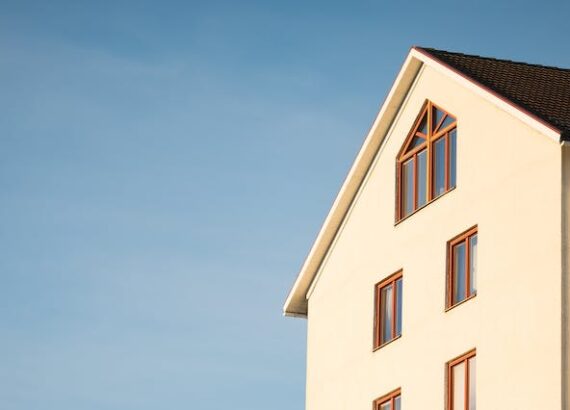Understanding Closing Costs When Buying a Home

Buying a home is an exciting milestone for many people, but it can also be a costly one. In addition to the down payment and monthly mortgage payments, homebuyers must also budget for closing costs. Closing costs are the fees and expenses associated with finalizing the purchase of a home, and they can add up quickly.
Many homebuyers are surprised by the amount of money they must pay at closing, and they may not fully understand what these costs entail.
In this article, we will explore the topic of closing costs in detail, including what they are, how they are calculated, and how to budget for them. We will also provide tips for avoiding common mistakes and taking advantage of available assistance programs.
What are Closing Costs?
Closing costs are the fees that homebuyers need to pay when purchasing a property.
Lenders do not include these costs in the down payment and they typically range from 2% to 5% of the total cost of the home. They include a variety of expenses, such as:
- Title search fees
- Appraisal fees
- Home inspection fees
- Attorney fees
- Mortgage origination fees
- Recording fees
- Transfer taxes
- Prepaid property taxes
- Prepaid homeowners insurance
- Homeowners association fees (if applicable)
- And other fees related to the purchase of the property.
It is important to note that it can vary depending on the location, lender, and type of property you are purchasing.
The Importance of Budgeting for Closing Costs
When planning to purchase a home, it is important to budget for it in addition to the down payment and monthly mortgage payments.
Underestimating it can lead to unexpected financial strain and even jeopardize the home purchase.
To avoid this, homebuyers should research the average closing-costs in their area, review the loan estimate provided by their lender, and consider negotiating with the seller to cover some of the costs.
How Are Closing Costs Calculated?
These are calculated based on the purchase price of the property, and they vary based on the location and the type of property. The higher the purchase price of the property, the higher the closing costs will be. Generally, these are between 2% and 5% of the purchase price of the home.
In addition to the purchase price of the property, the type of mortgage you choose also affects these.
Different lenders have different rates and fees for the mortgages they offer, and this can impact the closing costs you will need to pay. It is important to shop around and compare different lenders to find the best mortgage rates and closing costs for your situation.
What Can You Expect to Pay in Closing Costs?
These can vary depending on the location, lender, and type of property you are purchasing. However, the average of it in the United States are around $5,000.
This amount includes the fees associated with the purchase of the property and the fees associated with the mortgage.
Some of the most significant fees you can expect to pay at closing include:
- Title fees: These fees include the cost of the title search, title insurance, and other fees associated with the transfer of the title to the property.
- Mortgage fees: These fees include the cost of the appraisal, credit report, and origination fees charged by the lender.
- Government fees: These fees include transfer taxes, recording fees, and other fees charged by local and state governments.
- Prepaid expenses: These expenses include prepaid property taxes, prepaid homeowners insurance, and other expenses that may be required by the lender or government.
How Can You Save on Closing Costs?
These can add up quickly, but there are ways to save money. Here are a few tips to help you save on closing costs:
- Shop around for the best mortgage rates and fees.
- Ask your lender to provide a Good Faith Estimate (GFE) of the closing costs.
- Negotiate with the seller to pay a portion of it.
- Choose a no-closing-cost mortgage, where the lender pays the closing costs in exchange for a higher interest rate.
Common Closing Cost Mistakes to Avoid
Homebuyers can make several mistakes when it comes to it that can increase their expenses. One common mistake is not shopping around for a mortgage or lender, which can result in higher interest rates and closing costs.
Another mistake is failing to read and understand the loan estimate provided by the lender, which can lead to confusion about the fees and expenses involved in the home purchase.
Homebuyers should take the time to educate themselves about the process and ask questions to avoid costly mistakes.
Closing Cost Assistance Programs
There are several assistance programs available to help homebuyers with closing costs. These programs can include grants, loans, and other financial assistance provided by federal, state, and local government agencies, non-profit organizations, and lenders.
Certain programs specifically design for first-time homebuyers, low-income families, or certain professions such as teachers or military veterans.
Homebuyers should research the available programs in their area to determine if they qualify for assistance.
These additional sections provide more information about the importance of budgeting for it, common mistakes to avoid, and available assistance programs.
By understanding these topics, homebuyers can make informed decisions and save money when purchasing a home.
Conclusion
Closing costs are an important aspect of the home-buying process that should not be overlooked.
By understanding what these costs are and how they are calculated, homebuyers can budget effectively and avoid unexpected expenses. It is also important to be aware of common mistakes and take advantage of available assistance programs.
With careful planning and research, homebuyers can make informed decisions and save money when purchasing a home.
Whether you are a first-time homebuyer or a seasoned pro, understanding the ins and outs of closing costs can help you achieve your dream of homeownership.









